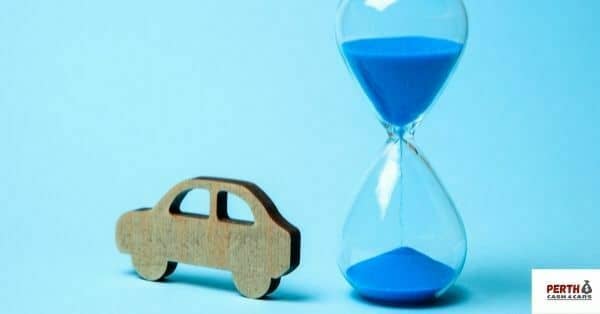Worried that your vehicle is losing its value? Wondering which car to buy to avoid excessive depreciation? This guide covers some of the most frequently asked questions about car depreciation, how it works and how to prevent it.
What is car depreciation?
Car depreciation is the term used to describe the reduction of a car’s value through use and time – so the difference between the price you paid for it and the price you could sell it for today.
What things affect the value of a car?
The drop in value of vehicles can be attributed to:
- Age – as new models are released each year, the older versions are likely to lose their value. This is probably one of the clearest indicators of the value of a vehicle, as you can sometimes (although definitely not always) make assumptions on the conditions and mileage of a car based on how old it is.
- Mileage – the further your car has driven, the less it’s likely to be worth. This is due to the fact that higher usage could result in a more wear and tear on key car parts, like the clutch, brake pads or brake discs. This could lead to a higher need for repairs or replacements.
- Number of owners – a higher number of previous owners will drop the price further, so check a vehicles logbook for how many people have been registered holders before.
- Condition of the vehicle – any drops or changes to the look and condition of the car could affect its price, as these may need to be fixed by the new owner, whether it’s standard wear and tear, or major damage to the vehicle’s interior, bodywork or exterior.
- Fuel economy – a vehicle becomes more expensive to drive if it’s less efficient with fuel, as having to fill up more often means higher ongoing costs – this will then often reflect in the price a car can be resold for.
- Reliability – some makes and models of car are considered more reliable than others, which can affect how much the value might drop over time.
- Lack of desirability – some people are willing to overlook some of the issues above for a style of vehicle that they really want. If your car make or model is particularly out of favour, then you may find it depreciates faster.
How much does a car depreciate per year?
On average, cars tend to depreciate at a rate of around 14% per year. This is much higher for the first few years of driving a brand-new car, with the first year likely to be the worst for devaluing your vehicle. You can expect the price for resale to drop by around 15%–35% over those 12 months, meaning you can only sell it for around 65%-85% of its original price by the second year.
How much will my car depreciate in 3 years?
By year 3, it’s very likely that a new vehicle will have depreciated by 50%-60%.
How many years should you keep a car?
The average car owner keeps their car for around 10 years, with brand-new cars often being sold on sooner than older or second-hand vehicles. This number is likely to grow, however, thanks to developments in car tech meaning newer models are better for the environment and more economical.
There’s a wide range of different factors that could affect how long you want to hang onto your car. More reliable models will stay in good shape – and as such, keep their value – for longer than others. Also, how you care for the vehicle, how many miles it’s covered, the conditions it’s kept in… all of these could shape how long you will hang on to your car before you part ways.
Also, are you looking to keep driving your car until it’s ready for scrap or salvage? Or are you planning to sell it on to another buyer while it still has a higher value, to help fund your next purchase? As new technology develops, newer models can definitely start to look more appealing. Which cars retain their value the most?
It’s difficult to pin the lowest depreciating cars down precisely – you’ll find a variety of different results for this through different sources online. And these can also change depending on how new the vehicle is. Reliability can be a good starting point for determining if a vehicle is likely to hold onto its value. Based on the frequency and cost of repairs, as well as the average age and mileage of models on the road, the Reliability Index rates the Toyota iQ as the most reliable vehicle on the roads. This is followed by the Mitsubishi Lancer and the Vauxhall Aglia, with the Hyundai Getz and Honda Jazz in fourth and fifth spots.
While sports cars, notably Porsches like the Cayman or 911, or the Lamborghini Aventador, will lose value faster when bought brand-new, they’re also sought-after in the second-hand market, so are often able to hold on to their value better over longer periods of time or higher mileage.
Likewise, SUVs are often likely to depreciate less than a saloon or hatchback due to the desirability of this style of vehicle.
Which cars lose value the fastest?
Again, there are many factors that make this very difficult to say for certain. However, when considering dependability and demand, then French and Italian car manufacturers (like Renault, Citroen or Fiat) have a historic reputation for being unreliable. Although that is not necessarily true in more modern models, this poor reputation could, unfortunately, affect how much you might be able to sell them on for, particularly when it comes to older vehicles.
Also, while it may not seem the most important consideration when buying a vehicle, less popular colours of car are likely to have a lower resale value. Stick to classic colours like dark grey, black, white or red rather than opting for bolder options such as bronze, orange or yellow.
What is the best age of car to buy?
Finding the ‘sweet spot’ of car age to purchase can be tough to gauge – for example, a reliable 10-year-old car that’s been well cared for could be a better bet than a newer car that’s in poor condition.
Taking into consideration the upfront cost, running/fuel costs, reliability, features and potential for future resale is important when researching any vehicle you’re considering, and we’d always recommend having a look for reviews of similar older cars online before making a purchase.
If you’re wanting to avoid too much depreciation, then it would make sense to buy an older car – you’ll need to invest less and you’re likely to lose the least amount of money over time. However, if you want to avoid too many repair costs and are keen to have a more economic vehicle, then newer cars will be likely to have a longer and more reliable life span.
Depending on your requirements, aiming to buy a second-hand vehicle of between around three to seven years is a good bet, with a safe middle ground (particularly if you’re hoping to avoid depreciation) of around five years old. You’ll most likely still have plenty of modern features and technology, as well decent fuel efficiency, but be less likely to lose too much value over a few years.
In terms of mileage, just bear in mind that around 15,000 miles per year is considered to be the industry average – if a car is newer but has a higher mileage, you could see yourself needing to pay out more for repairs and servicing over time.
How can I avoid car depreciation?
While there’s no way you can change how old your vehicle is, caring for it and keeping it in top condition is the best way to reduce the risk of depreciation.
Ways you can help it retain more value include:
- Regular servicing and maintenance
- Keeping mileage as low as you can
- Repairing damage as soon as possible
- Making sure it’s cared for, even if it’s not being driven
What to do if your car’s value is lower than its running costs
If the cost of keeping your vehicle on the road is more expensive than it would be to sell, then one of the most popular options is to consider scrapping your car.
At Perth Cash 4 Cars, we pay the highest price for any vehicle, at any time throughout Perth. Same day payment & removal guaranteed!
If you are in Como and looking for Perth Cash 4 Cars, below is the best way to visit us.


